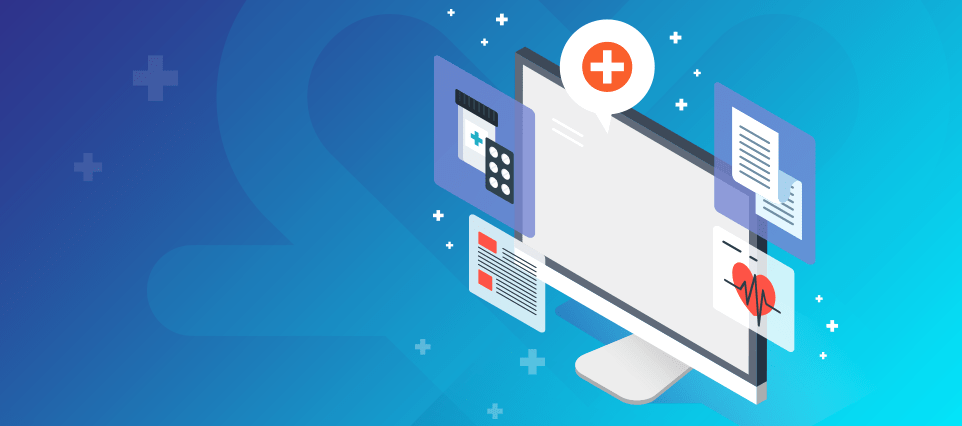It was in the 1960s that the idea of introducing informatics into the healthcare field began to be evaluated. In its early days, those professionals who ventured into this new discipline did so out of personal interest. They shared a passion for both disciplines: medicine and informatics, as well as a curiosity for the emerging technologies that were advancing in the world.
But it's over the years that this need has started to gain importance due to the fragmentation of patient information, the illegibility of records by different stakeholders - which often led to errors in patient care, even resulting in unnecessary tests or prescriptions. The main driving force behind this shift has been the vast amount of data generated in the health-disease process of patients being assisted across various services.
These data, if interpreted correctly, represent a valuable source of information about how healthcare is delivered, enabling the collection of more statistics that will help understand not only an individual's health status but also that of the general population. This, in turn, leads to the creation of more effective and improved healthcare policies.
This process of digitizing records has generated the need for the creation of a profile capable of understanding workflows and medical processes.
The contribution of the role
The health informatician must have the ability to understand the functioning of healthcare services based on their knowledge, combined with the expertise gained during their training and practice as a healthcare professional. They can then convey this understanding to IT professionals, enabling the development of computer systems that align with the unique needs of various healthcare services.
This is why the inclusion of a Health Informatician as a Functional Analyst in a clinical software project is of paramount importance to carry out various tasks within the project. These tasks are valuable to the development team and serve as support for Project Managers in understanding and prioritizing the needs of stakeholders.
These Functional Analysts have the ability to accurately interpret the complex technical language commonly used in the healthcare field, bridging the gap between different parties. They are also skilled at clearly identifying the needs of stakeholders and can even anticipate those needs.
Incorporating this new role allows the Analyst to not have to delve deeply into the field in which they will be working, as many of the process knowledge they need is already known. This results in greater project efficiency, as the healthcare professional brings prior knowledge to the table, making them productive from the outset.
Involvement in various activities of the process: gathering requirements and designing the solution.
The Analyst will gather the information provided by stakeholders and create the necessary documentation to facilitate their understanding of the system to be developed.
Firstly, the Business Analyst should gather and document the various workflows within the institution to gain a precise understanding of its operations.
In the subsequent stage, the functionalities that the system should include will be identified, thereby meeting the needs of the stakeholders and aligning with the workflow. During this stage, the Analyst designs Mockups (screen modeling) to clarify with the user the main interactions the system will have. Here are some examples.
Once the entire process is in place, along with the defined functionalities and concurrently with the document creation, functional validations are conducted. These validations are not based on the text of the document being developed or in the process of being developed but are performed with a low-fidelity prototype.
This approach makes it much easier for the stakeholders to understand how the system would behave and to validate the aspects that are well-defined, or to identify those that were not clear or for which incorrect assumptions were made.
Now, the development team can begin to implement the corresponding developments, knowing how the system should behave. For its final validation, the finalized requirements document can be delivered to the client based on the previous validations.
Functional testing
Another important aspect to consider about this professional is their ability to conduct functional testing, which enables the early identification of errors or misinterpretations that can lead to the improper functioning of the system or the failure of future implementations.
However, the most important aspect of this functional testing is that we can carry it out in the early stages, even identifying bugs when creating the prototype, as we can observe the system's behavior and confirm a potential bug with the stakeholder during validation.
Benefits
Their presence in the teams contributes to the system development process, enhancing the quality of communication between the parties, promptly interpreting the needs of the stakeholders and the institution.
These professionals have the ability to bridge the gap between developers, striving to be as clear as possible in defining a requirement, and users, as they can envision requirements from a user's perspective, shaping them the way they themselves would use them.
The participation of the Functional Analyst can reduce development costs within the project, as it's possible to validate with a low-fidelity prototype until the necessary validations are obtained, and then proceed with development, knowing precisely what the client wants.
Written by Andrea González, Functional Analyst at K2BHealth, by GeneXus Consulting.

